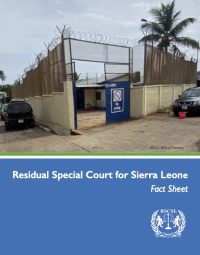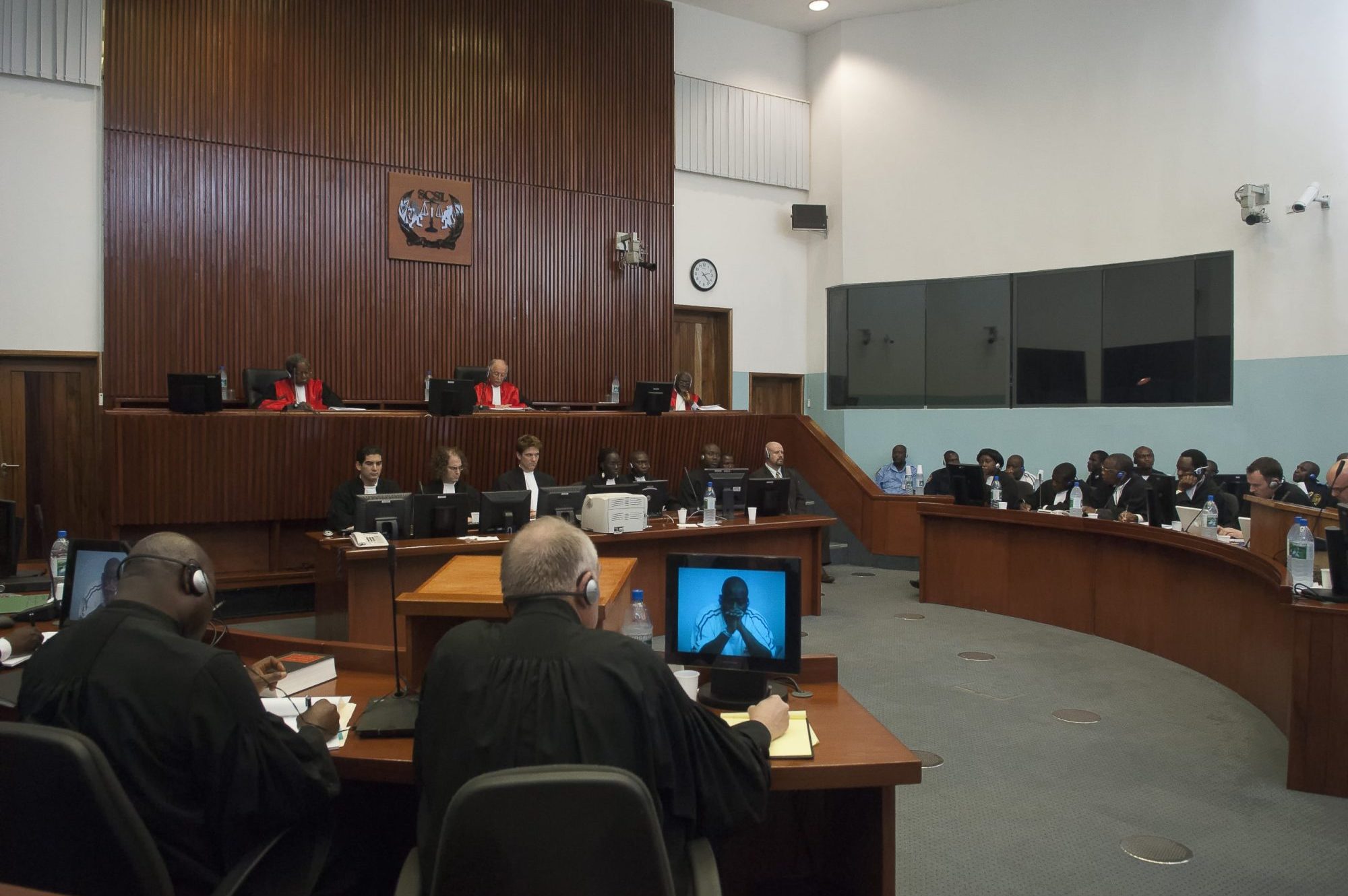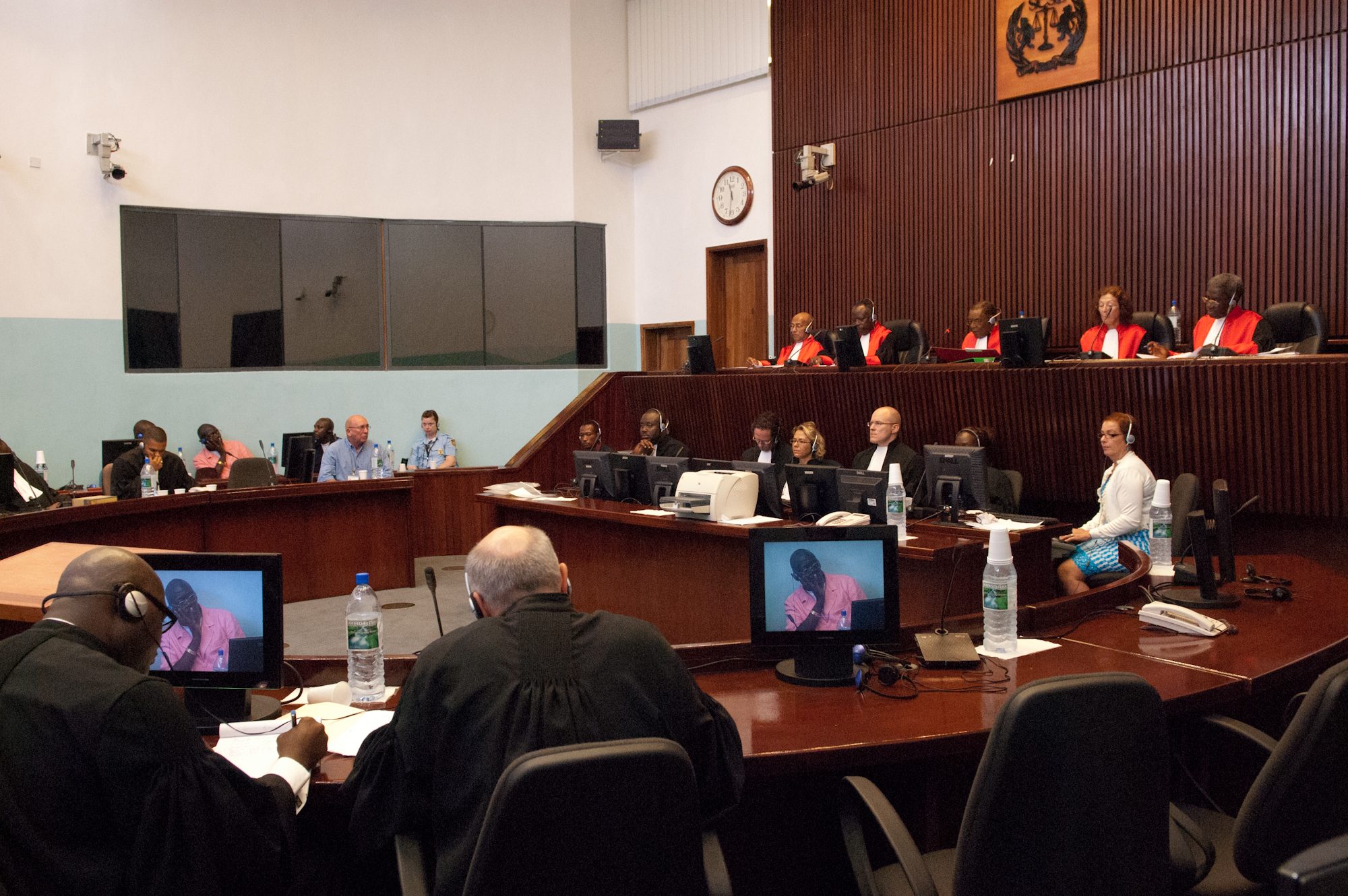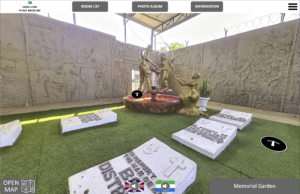The Residual Special Court for Sierra Leone was established by an agreement between the United Nations and the Government of Sierra Leone to oversee the continuing legal obligations of the Special Court for Sierra Leone after its closure in 2013. These include conducting contempt of court proceedings, witness protection, supervision of prison sentences, and management of the SCSL archives.
The RSCSL
The SCSL
Peace Museum
Trial Videos
Download Fact Sheet

This Fact Sheet is dedicated to all those who in diverse ways have contributed to bringing justice to the victims of the 11-year war in Sierra Leone in the 1990s. The information contained in the Fact Sheet is a highlight of the achievements and challenges of the Residual Special Court for Sierra Leone (RSCSL) and its predecessor – the Special Court for Sierra Leone (SCSL).
The Special Court has made historic contributions to international criminal justice. It was the first tribunal since Nuremberg to successfully bring to justice a Head of State (at the time of his indictment). Charles Taylor, the former President of Liberia was tried in The Hague by the Special Court for Sierra Leone and sentenced to 50 years in prison.
The Special Court was also the first in history to adjudicate on crimes relating to enlistment, recruitment, conscription or use of child soldiers; attacks on peacekeepers; forced marriage; sovereign immunity; effect of national amnesties on the jurisdiction of an international court and procedural relationships with a Truth and Reconciliation Commission.
Peace Museum - Virtual Tour
Take a virtual tour of the Peace Museum. The Peace Museum and Memorial Garden has been refurbished, redesigned, developed and expanded by the Residual Special Court, and re-launched in December 2019. It continues to occupy a portion of the former Special Court site and shares the site with other organizations including the Residual Special Court, the Law Reform Commission, the Justice Sector Coordination Office, and the Sierra Leone Law School.










